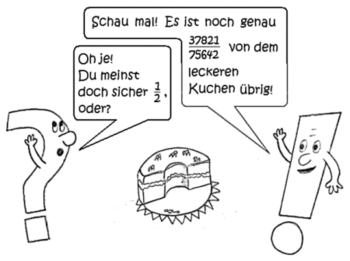6b 2013 14: Unterschied zwischen den Versionen
| Zeile 16: | Zeile 16: | ||
==== Schulaufgaben ==== | ==== Schulaufgaben ==== | ||
1. Schulaufgabe: 19. November 2013 | 1. Schulaufgabe: 19. November 2013 | ||
| − | (Listening, Grammar: tenses, comparison of adjectives, Text Production) | + | (Listening, Grammar: tenses, comparison of adjectives, question tags, Text Production) |
2. Schulaufgabe: 10. Januar 2014 | 2. Schulaufgabe: 10. Januar 2014 | ||
| Zeile 32: | Zeile 32: | ||
| − | + | == Text Production == | |
Tipps: | Tipps: | ||
| Zeile 55: | Zeile 55: | ||
| − | + | == Vocabulary == | |
Find the correct ENGLISH word for these explanations (You can find the correct answers on the bottom!): | Find the correct ENGLISH word for these explanations (You can find the correct answers on the bottom!): | ||
| Zeile 76: | Zeile 76: | ||
| − | + | == Exercises == | |
NEW | NEW | ||
Version vom 16. November 2013, 17:33 Uhr
|
Englisch
Text ProductionTipps:
Hier ist ein Musterdialog: Dad: Hi son, how was your trip to Nottingham? Bud: It was brilliant, Dad. I met some new friends and their names are David and Scott. Scott is American, too, so we could talk about a lot of things. That was great. Dad: What did you do together? Bud: On Wednesday we went to "The Tales of Robin Hood". Robin Hood is an English legend and he lived near Nottingham, so you can learn a lot about him there. Then we went to Sherwood Forest, too. Robin Hood lived there and sometimes he hid in a huge hollow oak. Dad: Why did he hide? Bud: The Sheriff of Nottingham, his enemy, chased him, so he had to hide. Dad, you should (=sollen) read a book about Robin. After that we can talk about Robin and his friends or maybe we can go to Nottingham together next year.
VocabularyFind the correct ENGLISH word for these explanations (You can find the correct answers on the bottom!): a) Past form of "go" b) Forest tree c) What you can see/ an interesting thing to see d) Another word for "story" e) Most important policeman in the Middle Ages f) Opposite of "child" g) A group of people who make music together
ExercisesNEW
Lösungen a) Past form of "go" = went b) Forest tree = oak c) What you can see/ an interesting thing to see = sight d) Another word for "story" = tale e) Most important policeman in the Middle Ages = sheriff f) Opposite of "child" = adult g) A group of people who make music together = band
|
|
Mathematik
|


